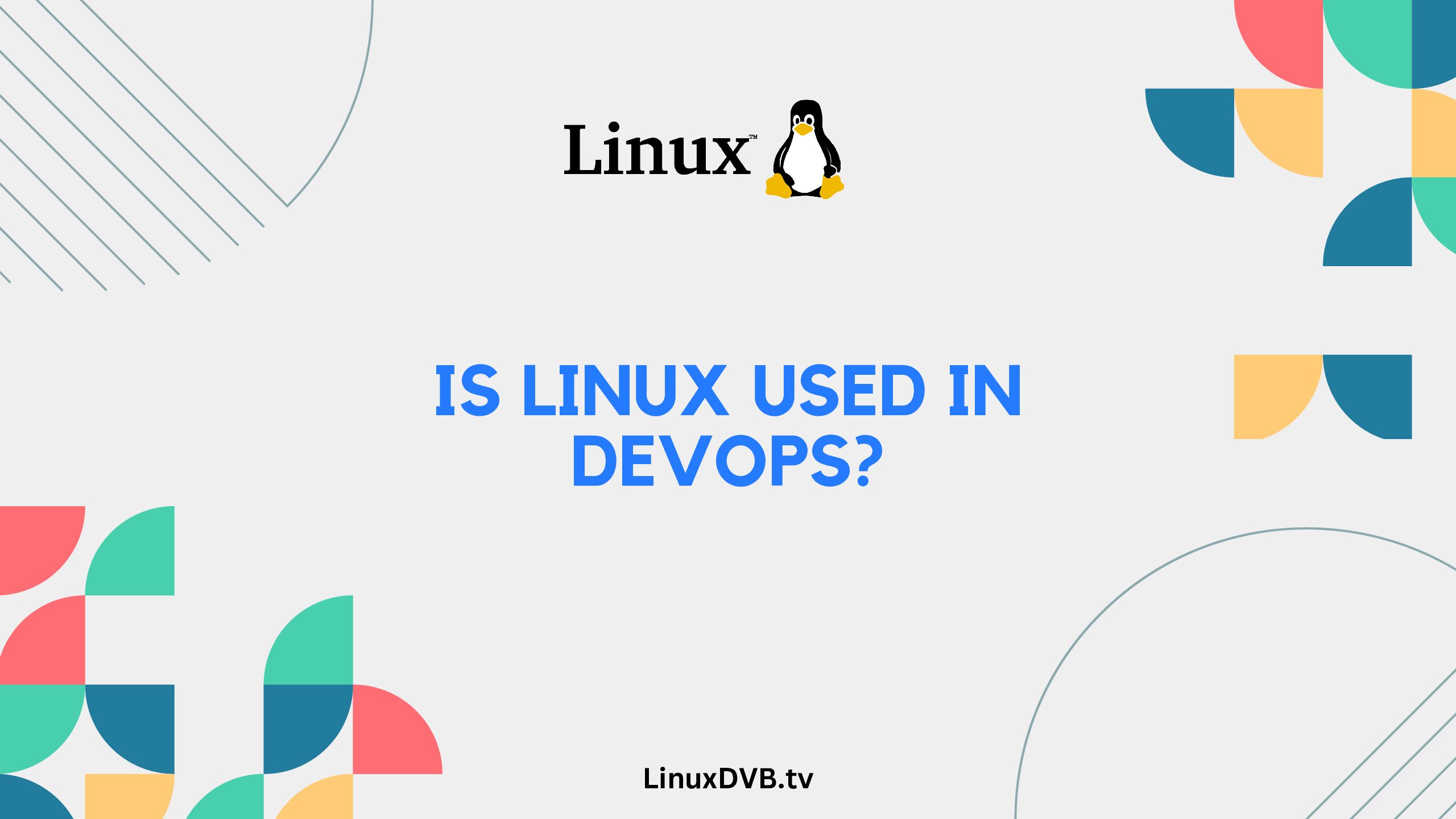Introduction
In the realm of DevOps, where agility and efficiency reign supreme, every tool in the arsenal counts. Among these indispensable tools, Linux stands tall, contributing significantly to the synergy that powers DevOps practices. In this comprehensive exploration, we’ll delve deep into the question: Is Linux used in DevOps?
Table of Contents
Linux: The Backbone of DevOps
Linux, often hailed as the open-source marvel, serves as the foundational pillar of DevOps. Its versatility, reliability, and robustness have made it the preferred choice for developers and operations teams alike. Let’s unravel the connection between Linux and DevOps, uncovering why they make such a perfect match.
Understanding DevOps
Before we venture further, it’s essential to grasp the essence of DevOps. DevOps is a cultural and technical movement that seeks to break down silos between development and operations teams, fostering collaboration and automation to deliver software faster and more efficiently. It’s all about streamlining the software development lifecycle.
The Role of Linux in DevOps
Linux in DevOps: At the Heart of Automation
One of the cornerstones of DevOps is automation, and Linux plays a pivotal role in achieving this automation. From scripting with Bash to deploying powerful automation tools like Ansible and Puppet, Linux provides a robust environment for automating repetitive tasks, ensuring consistency and reducing manual errors.
Linux Containers: Fueling DevOps Agility
Containerization is another key DevOps practice, and Linux powers this innovation. Technologies like Docker and Kubernetes leverage Linux container capabilities, enabling developers to package and deploy applications seamlessly across various environments, be it development, testing, or production.
Scalability and Flexibility: Linux’s Forte
DevOps often demands scalability and flexibility to meet dynamic business requirements. Linux offers both in abundance. Its scalability allows organizations to adapt to changing workloads effortlessly, while its open-source nature means it can be tailored to suit specific needs.
Continuous Integration/Continuous Deployment (CI/CD): Linux’s Friend
CI/CD pipelines are the lifeline of DevOps, ensuring rapid code integration and deployment. Linux’s compatibility with CI/CD tools like Jenkins and Travis CI simplifies the automation of these pipelines, facilitating faster software delivery.
Security and Reliability: Linux’s Commitment
In the world of DevOps, security and reliability are paramount. Linux’s robust security features and continuous updates make it a secure choice for DevOps environments. Moreover, its reliability ensures minimal downtime, a critical factor in the DevOps philosophy.
Real-World Experiences
Let’s hear from DevOps practitioners who have harnessed the power of Linux in their journey.
John, a DevOps Engineer: “Linux is the backbone of our DevOps practices. It enables us to automate tasks, manage containers effortlessly, and maintain a secure environment. Without Linux, our DevOps pipeline would lose its efficiency.”
Sarah, a Software Developer: “Working with Linux in a DevOps setting has been a game-changer. The flexibility it offers in terms of scripting and containerization has boosted our productivity and accelerated our software delivery.”
FAQs: Uncovering More Insights
Can I use Linux in a Windows-based DevOps environment?
Absolutely! Linux can seamlessly integrate with Windows systems, making it versatile for mixed environments.
Are there any specific Linux distributions preferred in DevOps?
While preferences vary, distributions like Ubuntu, CentOS, and Red Hat are popular choices due to their stability and support.
Is Linux difficult to learn for DevOps beginners?
Linux has a learning curve, but numerous online resources and communities make it accessible for beginners.
How does Linux contribute to cloud-based DevOps?
Linux is the foundation of many cloud platforms, such as AWS and Azure, making it essential for cloud-based DevOps.
Are there any downsides to using Linux in DevOps?
Some may find the command-line interface intimidating at first, but the benefits far outweigh this initial challenge.
Can I use Linux for DevOps in non-technical industries?
Absolutely! DevOps principles, supported by Linux, can enhance efficiency in various industries, not just tech.
Is Linux used in DevOps?
Yes, Linux is commonly used in DevOps for its stability and flexibility.What should I learn in Linux for DevOps?
You should learn command-line usage, shell scripting, package management, and system administration tasks in Linux for DevOps.What is Linux in AWS DevOps?
Linux in AWS DevOps refers to using Linux-based operating systems for managing and deploying applications on the Amazon Web Services (AWS) cloud platform.Is Linux better for DevOps?
Linux is often preferred for DevOps due to its open-source nature, extensive toolset, and compatibility with many DevOps tools and practices.Conclusion
In the ever-evolving landscape of DevOps, Linux has emerged as an indispensable ally, contributing to its success on multiple fronts. From automation to containerization, scalability to security, Linux plays a central role in shaping the DevOps ecosystem.

